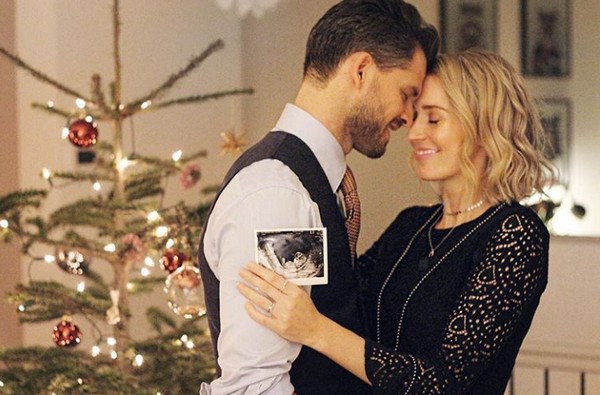
The supposed authenticity of social media celebrities
Social media celebrities are a phenomenon from the last decade. Unlike traditional celebrities, such as film stars and pop singers, everyone can be a social media celebrity. They are authentic and just like you. Or rather, that is what they want to make you believe.
Social media celebrities and the authenticity standard
“While authenticity as a moral imperative to be “true to oneself” is highly valued, cultural theorists have noted that achieving it is ultimately impossible, as it is a social construct that is always relative and context-dependent” (Grazian, as cited in Marwick, 2013: 2). However, every celebrity wants to be as authentic as possible. Authenticity is in the cultural logic and the branding strategies of traditional as well as social media celebrities.
However, there is a difference in the type of authenticity traditional celebrities and social media celebrities employ. Where the cultural logic of traditional celebrities has to do with guesswork authenticity, in which the image of the celebrity is always well-managed and protected, the cultural logic of social media celebrities consists of staged authenticity. This means that they “establish a sense of authenticity through the interactive representation of the intimate and private self, and adopt affiliative techniques to show equality and commonality with fans” (Hou, M, 2018: 15).
When looking at different social media celebrities, one will find that the content on their social media is more or less similar. The faces differ, but there seems to be a certain standard for being authentic.
Thus, the authenticity of the social media celebrity goes a bit further than the authenticity of the traditional celebrity. Social media celebrities show more of their private lives and get closer to their audience. Therefore, they can seem even more authentic. Some examples: vlogger Enzo Knol and his girlfriend announced via an emotional vlog on YouTube that they were breaking up (a few months later they were back together, by the way). Jessica and Garrett Gee of The Bucket List Family uploaded a vlog of the birth of their youngest son.
Patterns of authenticity
This means that every social media celebrity tries to be real and authentic. However, when looking at different social media celebrities, one will find that the content on their platforms is more or less similar. The faces differ, but there seems to be a certain standard for being authentic. Some examples: they all post those typically authentic #nomakeup selfies and they always #wokeuplikethis.
Moreover, there are many examples of online authenticity that dive even deeper into the private sphere. Social media celebrities like Sanny Verhoeven (figure 1), Kae Sutherland (figure 2), Bibi Breijman, Monica Geuze and Serena Verbon have let the world know they are pregnant via Instagram (Cosmopolitan, 2018). It is a trend to let the world know you are pregnant via social media nowadays, also among social media celebrities. Many of them post their announcement alongside an ultrasound of the foetus in their womb, letting their audience come even closer to them. It is a sign of authenticity and a trend among social media celebrities to share the first ‘picture’ of the baby with the whole world. One can see it as an authenticity pattern.
Sanny Zoekt Geluk j_1.jpg

Figure 2: Kae Sutherland announcing she is pregnant

Authenticity patterns like these are not new. Marwick (2013), who studied the phenomenon of authenticity among fashion bloggers, saw several patterns like the one above within the content of fashion bloggers. She states that “the authentic is not something that exists apart from commercial culture, but a set of affective relations between individuals, audiences, and commodities. While the emphasis on fashion/beauty goods is somewhat specific to this community, authenticity as a boundary strategy between selfhood and neoliberal capitalism is a common feature of entrepreneurial online communities, such as selfbranders, camgirls, and lifecasters.” (Marwick, 2013: 2).
An example of what Marwick says is visible on the Instagram post of beauty vlogger Serena Verbon (Figure 3). With this photo, Serena gives her audience a behind-the-scenes look at her life, while at the same time promoting a product. Because this post is very much framed as a behind-the-scenes kind of post, the audience sees it as authentic. However, at the same time, we can speak of the post being part of commercial culture, because she is branding a product. Thus, the authentic is not something that exists apart from commercial culture. And, as Marwick already pointed out, other social media celebrities also like to emphasize their authenticity.
The question is, if all social media celebrities try to be ‘authentic’, why do they end up looking so similar to one another in terms of media image, as we saw in the example with the pregnancy announcements?
The rules of the social media market
Marwick (2013) already pointed out the impact of neoliberal capitalism in the quote above. Exactly this neoliberalist influence is important for the trend of ‘authenticity’ that has come into being. Neoliberalism is “an economic philosophy that privileges the unfettered functioning of the free market” (Hou, M., 2018, April 25: personal communication).
What does this mean for social media celebrities? Well, they more or less represent the ideal: the ideal neoliberalist subject and the ideal entrepreneurial subject; someone “who works on him or herself, and relies on his or her hard work rather than support from others or the state” (Marwick, 2013: 7). This attitude enables the social media celebrity to function well on the free social media market of supply and demand. Within this market, one can state that the celebrity is the supply that reacts to the demand.
This works as follows: on social media, there is a great demand for authenticity. The audience of the social media celebrity wants to see realness and truthfulness. At the same time, this realness and truthfulness has to be very specific to be liked by a mainstream audience. Because a social media celebrity has the goal to gain as much likes, comments and followers as possible, he or she should react to the demand for authenticity as well as the demand for being mainstream. Thus, a social media celebrity should be real and truthful, but at the same time they should also be attractive for an audience that is as big as possible.
The social media celebrity as neoliberal subject
What I've shown is that the social media celebrity is seen as a neoliberal subject and they therefore function on the free market. This also means that they are not totally free in their choices. They might have the feeling they are free, but this freedom is an illusion.
The celebrity always has to stay between the socially constructed borders of the consumer’s demands, because if they do not, this might have a negative impact on their amount of likes, comments and followers. These socially constructed borders have to do with the meaning consumers give to certain things: a woman with red lipstick stands for boldness, while the man that strikes with his hand through his hair is sexy for example. The rules for authenticity are similar: letting the world know you're pregnant is nice, but also letting people see the baby's first echo, or your baby belly or even a birth story, gives it authenticity.
This brings is back to where we started: authenticity is highly valued and social media celebrities might therefore try to be as authentic as possible. However, real authenticity can be seen as an impossibility, because it is a social construct that is always relative and context-dependent. A social media celebrity might be trying to be as authentic as possible, but followers and likes are always more important. This causes them to all strike the same pose in the end.
References
Cosmopolitan. (2018, January 1). Vloggers en celebs die zwanger zijn en in 2018 een kindje krijgen.
EnzoKnol. (2017, September 28). Het is voorbij. [video file]
Hou, M. (2018). Social media celebrity and the institutionalization of YouTube. Convergence, 1-20.
Jerslev, A. (2016). In time of the Microcelebrity: Celebrification and the YouTuber Zoella. International Journal of Communication (10), 5233-5251.
Marwick, A. (2013). ‘They’re really profound women, they’re entrepreneurs’: Conceptions of authenticity in fashion blogging. 7th International AIII Conference on Weblogs and Social Media (ICWSM), July 8. Cambridge, MA, USA.
Sutherland, K. (kaesutherland). (2017, October 9) [Instagram post]
The Bucket List Family. (2018, April 1). BIRTH STORY!! Welcome Baby Boy, Calihan Gee!! /// WEEK 101 : Utah. [video file]
Verbon, S. [serenaverbon]. (2017, April 13). [Instagram post]
Verhoeven, S. (sannyzoektgeluk] (2017, December 26) [Instagram post]
